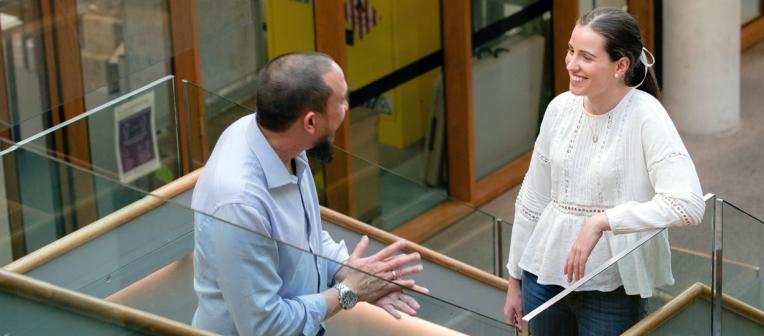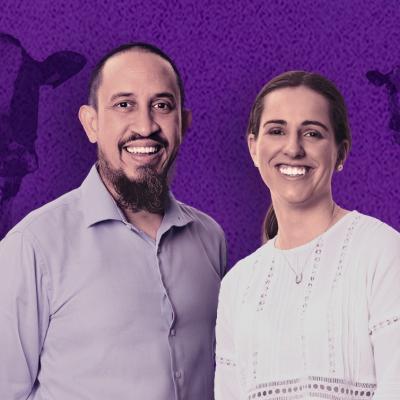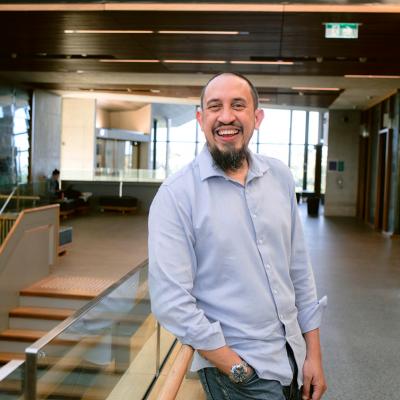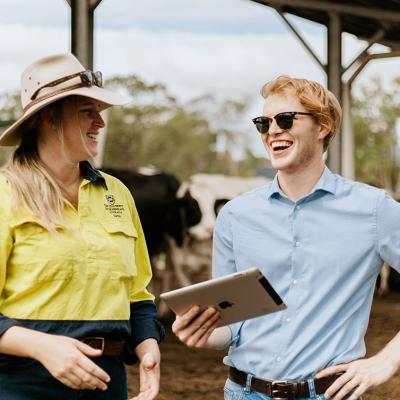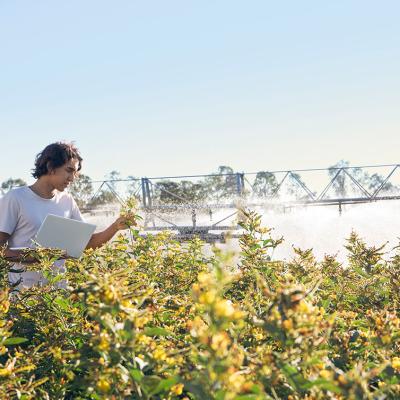Considering studying agriculture or agribusiness at university? You may have lots of questions. We're here to help you find answers.
- Why study agriculture?
- What are the benefits of studying agriculture?
- What skills do you learn while studying agriculture at university?
- Is an agribusiness degree worth it?
- What jobs are in agribusiness?
We've interviewed a UQ student and academic to find out. Genevieve is studying a Bachelor of Agribusiness and Dr Ammar Abdul Aziz teaches in the School of Agriculture and Food Sustainability. They’ve teamed up to answer some of your questions and uncover how UQ can give you the skills you need to face the future, even when you don't know exactly what the future will look like.
Let's find out if agriculture sounds like the study area for you.
What are some of the coolest jobs your former students are doing?
Ammar: One is a commodity broker in the United States. There's another one who created ice cream from banana waste. I think that’s exciting.
How does the way you learn at UQ give you the skills you need to face an unknown future?
Genevieve: I think it teaches us the skills to face an unknown future because it's about hands-on experience. It's about applying the knowledge that the lecturers teach us and putting it into practice every day. E
"Even if we already have an agricultural background in agribusiness, it teaches us the skills to talk to businesses, not just the farmers. That's important in agriculture."
What opportunities do your students have to get hands on experience in our industry?
Ammar: We've got what we call a capstone course. It builds on your experience in the first semester and second semester, then in the third semester you get to actually work with consultants with major agribusinesses.
What do you think employers in the industry are looking for? And how do you think UQ has equipped you with these skills?
Genevieve: I think employers in the industry are looking for people who show commitment, integrity and a passion for agriculture and agribusiness. People who are driven in the industry to not just go ‘we’re doing this at the moment’, but to go ‘alright, we're doing this, but how can we expand the commodity or expand the enterprise?’. UQ has given us some updated knowledge of the industry. Because UQ looked at it and go 'in 2020, this happened' – so then they'll apply it to a subject where you can be real hands-on about the technology that's coming through and learn from those examples.
What makes a good student? Are they the same things that make a good job candidate?
Ammar: When I see someone committed turning up the class and doing the work on time, that's half of the battle won already. That's a sign of a good student. When you're a good student, you're also a good employee, or potential employee.
What does a day in the life of an agribusiness student look like?
Genevieve: So you'd start by going to class in the morning, and then you might have a break for two hours in the middle, so you'd go to get something to eat from the café at Gatton. And then you'd sit in the library and study and then you'd go to your next lecture.
After class there’s also associations like the UQ Agribusiness Association – they do other outside activities like dinners with social networking.
"Being involved in a student society like this helps you get to know people outside of uni such as companies and future employers and allows you to have a chat to them about what they're doing."
If you were employing the next agribusiness graduate, who would you be looking for?
Ammar: Someone who actually thinks outside the box. Because one of the things that I think is important is students that can critically think.
What's the most interesting thing you've learnt that's not part of your coursework?
Genevieve: The clubs and associations do a really good job of teaching us skills that are different to those learnt in lectures and courses. The UQ Agribusiness Association has taught me how to network with people who may be CEOs or heads of big companies and to look up to them, but also to just understand that they’re actually a person and to ask them about how their day is or ask them about what their business is and try and to get involved that way.
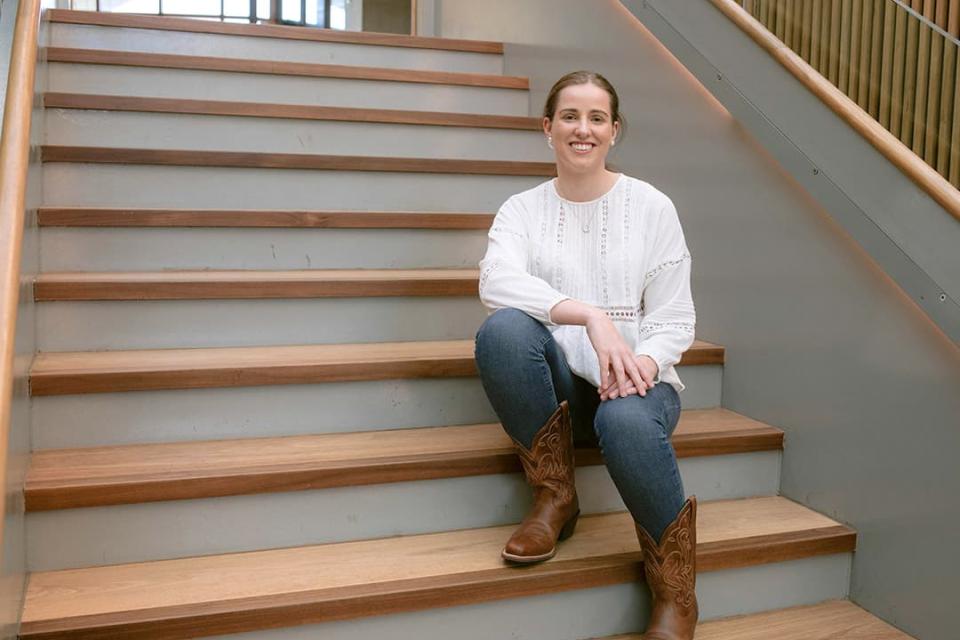
If you could give me one piece of advice that would set me apart as a job candidate, what would it be?
Ammar: Number one, is getting the experience while you're studying. I'm saying this not just from my perspective, but from what I've heard from all those, you know, CEOs that we've got coming in and telling us what they're looking for. They want someone who is brave enough to stand up and ask a question, and they want someone who can think outside the box. They want to be able to say 'here's a problem – solve it for me', and know you'll dive in and give it a go.
What have you learned about yourself since you began your studies at UQ?
Genevieve: It’s taught me to be down to be down to earth and be in love with agriculture, which I am. I take hobbies up that involve agriculture and agribusiness and to broaden my communication skills with everyone, especially since, like you say, we get people coming in to speak to us from industry. I think that gives me experience, and I've learned that I can communicate with them on a general knowledge basis.
What do you think a regional university campus like Gatton can offer students?
Ammar: We've got students that come from different backgrounds. Some come from the livestock industry, I’ve got students that come from cropping, and we also have students coming from other countries. That's number one, where you get to share a wealth of experience amongst yourselves. And the other thing is about the facilities that we have at Gatton – we've got a dairy, a piggery and we’ve got funky stuff happening in the vet school. There are plenty of opportunities to get clinical or hands-on experience.
The other thing I think is important is the world-class agricultural science research that's happening at UQ.
"Students have the opportunity to expose themselves to the ongoing research that's happening and keep up to date with what's changing."
Learn more about UQ's Gatton campus or take a virtual tour.
What makes UQ a great place to study agricultural science and animal science?
Ammar: The interesting thing is that the Gatton campus is geared towards teaching agriculture and animal science. It's about 60 minutes away from the St Lucia campus. There are free buses that take you from St Lucia to Gatton several times a day.
Explore undergraduate programs in agriculture or discover what it's really like to study other programs at UQ.

